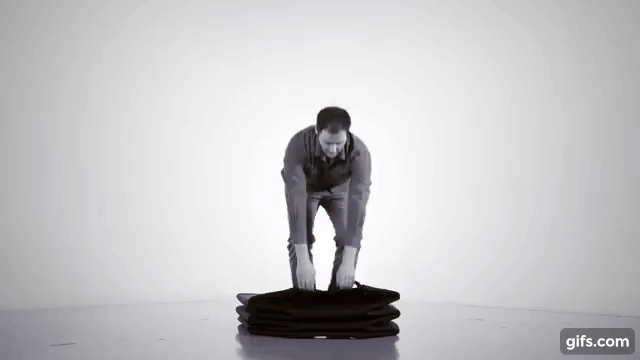Pam & Tommy
“Separate your price from your worth,” Hugh Hefner paternally warns Pamela Anderson (Lily James) nearly two-thirds of the way through Hulu’s new limited series “Pam & Tommy,” about the theft and distribution of Pamela’s honeymoon sex tape with her husband, Mötley Crüe drummer Tommy Lee (Sebastian Stan), whom she married after a whirlwind four-day romance. It’s the first real piece of advice anyone’s given her about the explosive career she’s about to have—first as Playboy Playmate in the late ‘80s, then a TV bombshell on “Baywatch”—and, ignoring the dubiousness of the source, speaks to the thematic territory showrunner Robert Siegel and EP Craig Gillespie want to cover. It’s a show about a very specific moment in history, where the ‘90s was set to change the world forever with the rise of celebrity gossip mags and the mass reach of the Internet. But it’s also more broadly about the public’s relationship with celebrity, and the entitlement the average person feels to accessing the innermost lives of the people they see on TV. (Doubly so when the person in question is a cultural sex symbol whose very existence makes men feel a sense of ownership of her body.) The show casts a wide net over all these concerns, bouncing between searing biopic drama and Coen brothers-esque dark comedy, and it doesn’t all work. Based on the 2014 Rolling Stone article on the subject, “Pam & Tommy” curiously starts not with its titular characters, but in the mind of the schlub who stole the sex tape in the first place: embittered contractor Rand Gauthier (Seth Rogen), a working stiff and “amateur theologian” who justifies stealing the tape as vengeance for being bilked out of thousands by the volatile Tommy. Soon enough, he’s folded in an old porn-industry buddy, “Uncle” Miltie Ingley (Nick Offerman), and together they start copying and selling the tapes on the Internet. Naturally, it snowballs out of everyone’s control from there, the show flitting from subplot to subplot with nary a chance to develop most of them. A lot of the show’s barely-controlled chaos can be laid at the feet of “I, Tonya” and “Cruella” director Gillespie, who directs the first three episodes of the eight-episode series (and who never met a tracking shot or needle drop he didn’t like). He turns on that same approach here, cameras constantly weaving and coasting through the immaculately-rendered ‘90s world the costume and production designers have set for themselves. It’s all very slick and diverting, but starts off the series with a breeziness that makes it harder for follow-up directors Lake Bell, Gwyneth Horder-Payton, and Hannah Fidell to bring down the hammer on the script’s justifiable cultural targets: sleazy TV producers, ogling fans and paparazzi, every craven opportunist who wants a piece of the pie. As an idiots-on-parade heist comedy, it sort of works—Rogen is always a reliable everyman, finding layers of likability in a dopey dude very clearly out of his depth and running entirely on impulse. But it’s hard not to feel that every time we cut away to see what pathetic shenanigans Rand’s up to (including, eventually, having to fashion himself into a reluctant mob enforcer for Andrew Dice Clay’s nasty loan shark), it takes significant time away from the real focus of the story: Pamela Anderson and the tape’s effect on her career, marriage, and life. It’s these components that work best, due in large part to James’ stunning lead turn as Pamela. While she doesn’t fully disappear into the role—Anderson, whatever you may say about her as a performer, is impossible to truly replicate—James’ physical transformation (including pouty lips, a breathy Marilyn Monroe whisper, and conspicuously ample chest plate) gets pretty close. What’s more, James does a service to her subject by avoiding the tabloid caricature of Anderson as a dumb bimbo, instead playing her with a refreshing self-awareness and welcome ambition, as blinkered as it may be. (You don’t need hindsight to figure out that Pamela Anderson shouldn’t have hinged her movie-star hopes on something like “Barb Wire.”) While the show is clearly Pam’s story, we can’t forget about Tommy, played with childish volatility by Stan. On the one hand, Stan’s Tommy is cartoonish, a hair-trigger buffoon as motivated by his dick as anything else. (One of the series’ most bizarre scenes literalizes this, as he has a heart-to-helmet conversation with his own enormous, prehensile member, voiced by Jason Mantzoukas.) On the other, his love for Pamela is right there on the surface, peeking out through layers of tattoos and the bro-code mores of the dipshit heavy-metal subculture he rides in. It’s not nearly on the same level as James’, but Stan is engaging from moment to moment, and I hope he gets more chances to dip out from his Marvel contract to stretch his acting legs like this. Still, for all its strong performances, stylish direction, and curious whiplash of tones, “Pam & Tommy” ends up mired in its own ethica


“Separate your price from your worth,” Hugh Hefner paternally warns Pamela Anderson (Lily James) nearly two-thirds of the way through Hulu’s new limited series “Pam & Tommy,” about the theft and distribution of Pamela’s honeymoon sex tape with her husband, Mötley Crüe drummer Tommy Lee (Sebastian Stan), whom she married after a whirlwind four-day romance. It’s the first real piece of advice anyone’s given her about the explosive career she’s about to have—first as Playboy Playmate in the late ‘80s, then a TV bombshell on “Baywatch”—and, ignoring the dubiousness of the source, speaks to the thematic territory showrunner Robert Siegel and EP Craig Gillespie want to cover.
It’s a show about a very specific moment in history, where the ‘90s was set to change the world forever with the rise of celebrity gossip mags and the mass reach of the Internet. But it’s also more broadly about the public’s relationship with celebrity, and the entitlement the average person feels to accessing the innermost lives of the people they see on TV. (Doubly so when the person in question is a cultural sex symbol whose very existence makes men feel a sense of ownership of her body.) The show casts a wide net over all these concerns, bouncing between searing biopic drama and Coen brothers-esque dark comedy, and it doesn’t all work.
Based on the 2014 Rolling Stone article on the subject, “Pam & Tommy” curiously starts not with its titular characters, but in the mind of the schlub who stole the sex tape in the first place: embittered contractor Rand Gauthier (Seth Rogen), a working stiff and “amateur theologian” who justifies stealing the tape as vengeance for being bilked out of thousands by the volatile Tommy. Soon enough, he’s folded in an old porn-industry buddy, “Uncle” Miltie Ingley (Nick Offerman), and together they start copying and selling the tapes on the Internet. Naturally, it snowballs out of everyone’s control from there, the show flitting from subplot to subplot with nary a chance to develop most of them.
A lot of the show’s barely-controlled chaos can be laid at the feet of “I, Tonya” and “Cruella” director Gillespie, who directs the first three episodes of the eight-episode series (and who never met a tracking shot or needle drop he didn’t like). He turns on that same approach here, cameras constantly weaving and coasting through the immaculately-rendered ‘90s world the costume and production designers have set for themselves. It’s all very slick and diverting, but starts off the series with a breeziness that makes it harder for follow-up directors Lake Bell, Gwyneth Horder-Payton, and Hannah Fidell to bring down the hammer on the script’s justifiable cultural targets: sleazy TV producers, ogling fans and paparazzi, every craven opportunist who wants a piece of the pie.
As an idiots-on-parade heist comedy, it sort of works—Rogen is always a reliable everyman, finding layers of likability in a dopey dude very clearly out of his depth and running entirely on impulse. But it’s hard not to feel that every time we cut away to see what pathetic shenanigans Rand’s up to (including, eventually, having to fashion himself into a reluctant mob enforcer for Andrew Dice Clay’s nasty loan shark), it takes significant time away from the real focus of the story: Pamela Anderson and the tape’s effect on her career, marriage, and life.
It’s these components that work best, due in large part to James’ stunning lead turn as Pamela. While she doesn’t fully disappear into the role—Anderson, whatever you may say about her as a performer, is impossible to truly replicate—James’ physical transformation (including pouty lips, a breathy Marilyn Monroe whisper, and conspicuously ample chest plate) gets pretty close. What’s more, James does a service to her subject by avoiding the tabloid caricature of Anderson as a dumb bimbo, instead playing her with a refreshing self-awareness and welcome ambition, as blinkered as it may be. (You don’t need hindsight to figure out that Pamela Anderson shouldn’t have hinged her movie-star hopes on something like “Barb Wire.”)
While the show is clearly Pam’s story, we can’t forget about Tommy, played with childish volatility by Stan. On the one hand, Stan’s Tommy is cartoonish, a hair-trigger buffoon as motivated by his dick as anything else. (One of the series’ most bizarre scenes literalizes this, as he has a heart-to-helmet conversation with his own enormous, prehensile member, voiced by Jason Mantzoukas.) On the other, his love for Pamela is right there on the surface, peeking out through layers of tattoos and the bro-code mores of the dipshit heavy-metal subculture he rides in. It’s not nearly on the same level as James’, but Stan is engaging from moment to moment, and I hope he gets more chances to dip out from his Marvel contract to stretch his acting legs like this.
Still, for all its strong performances, stylish direction, and curious whiplash of tones, “Pam & Tommy” ends up mired in its own ethical quicksand. After all, for a show so committed to detailing the real emotional and psychological harm the sex tape scandal did to Pamela, doesn’t rehashing it with movie stars and lurid exaggeration pour more salt in the wound? It’s not something that threatens to completely undo the work—after all, we don’t ask this of so many other televisual rehashes of true-life celebrity scandals. But Pamela here is so unequivocally innocent, the events so deeply defined by the torment and humiliation she experienced, it feels a bit gross to treat it so trivially (especially since the show lacks the endorsement of the real Anderson).
It’s not hard to see that, like with his previous examinations of women tossed aside by pop culture, Gillespie wants to do the same with Pamela. And to the show’s credit, when it actually sits down long enough to reckon with the innate misogyny of the sex tape’s appeal and the way it’s affected its subject, it succeeds mightily. But there are too many balls in the air, and its tongue is planted too firmly in cheek, to avoid sabotaging itself. In the end, it’s up to Pamela herself to decide whether such a rehabilitation is truly necessary, or even helpful. Until then, we as viewers have to reckon with whether or not “Pam & Tommy” is just another violation of privacy, as filtered through the glossy lens of prestige TV.
The first three episodes of "Pam & Tommy" premiere on Hulu on February 2nd. All eight episodes were screened for review.



















.jpg)

:quality(85):upscale()/2024/10/09/794/n/1922283/3f35cdf56706c5a92ddff9.14514426_.jpg)
